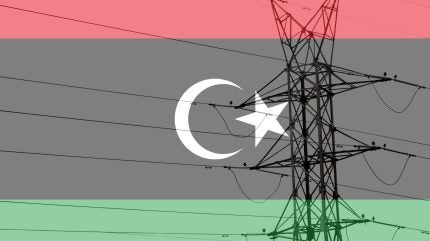
Libya has launched its first set of minimum energy performance standards (MEPS) and labelling programme, aiming to improve energy efficiency and enhance regulatory frameworks.
This move is seen as a step forward by the country in its energy transition.

Discover B2B Marketing That Performs
Combine business intelligence and editorial excellence to reach engaged professionals across 36 leading media platforms.
It also marks a collaboration between the Libyan Ministry of Planning, the Libyan National Center for Standardization and Metrology (LNCSM), and the United Nations Development Programme (UNDP).
The programme is financed by the EU as part of the wider UNDP initiative.
The launch event saw participation by senior government officials, technical bodies, private-sector representatives, and development partners.
Libya’s electricity grid faces rising pressure due to growing demand, the use of outdated appliances, and limited regulations.

US Tariffs are shifting - will you react or anticipate?
Don’t let policy changes catch you off guard. Stay proactive with real-time data and expert analysis.
By GlobalDataWithout clear product performance benchmarks, inefficient appliances circulate in the market, causing energy wastage and increased emissions.
To address this, the new MEPS introduces six national standards for household appliances such as refrigerators, air conditioners, and LED lamps.
An accompanying energy labelling system will assist consumers in choosing more efficient products and help in phasing out energy-intensive, low-quality items.
Libya’s Minister of Planning Mohamed Al-Zaidani said: “The introduction of these standards reflects Libya’s broader commitment to building a more transparent, efficient, and responsive energy sector.
“We are proud to work with national institutions and our international partners to deliver practical reforms that serve the public interest, and we thank the EU for having financed these efforts.”
The initiative also features the creation of a digital energy efficiency platform to aid national institutions in monitoring implementation, ensuring compliance and guiding future policy decisions.
LNCSM general manager Ali Ben Zitoun said: “These standards and tools will strengthen consumer protection, raise product quality across the market, and contribute to reducing overall electricity consumption in Libya, leading to a significant reduction in household electricity bills and a reduction in carbon footprint.
“This is an expression of how the EU-Libya Energy partnership delivers tangible benefits to Libyan citizens.”
Libya joins over 120 countries with MEPS and labelling schemes to improve energy performance and support climate objectives.
UNDP has stated that throughout the process, it has provided technical assistance by facilitating consultations, developing standards, and strengthening institutional capacity for system implementation and monitoring.
Future plans include public awareness campaigns, training for market bodies, and adding standards to cover additional product categories.





